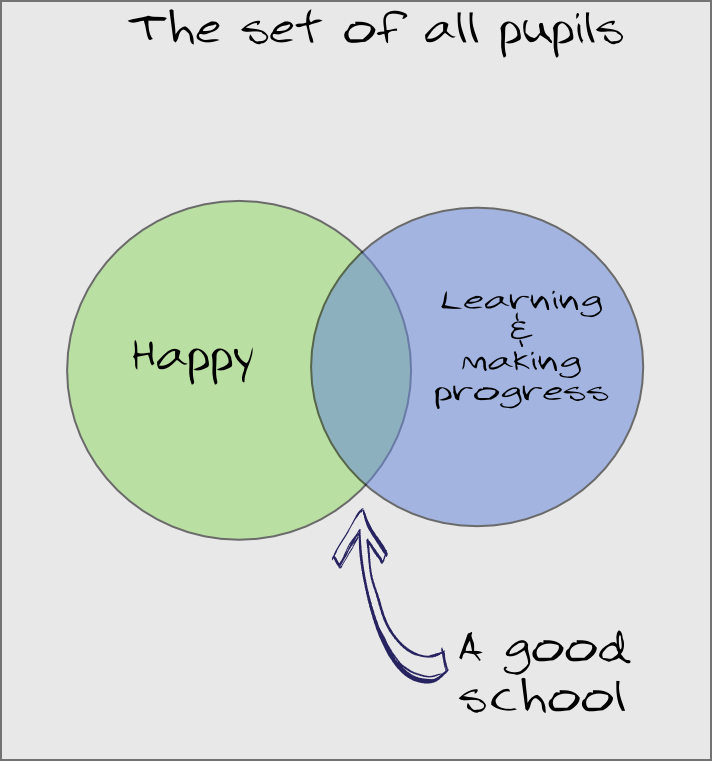 What makes a good school – a question that is often asked, by parents, teachers, Ofsted, the government, pupils … anyone with an interest in education.
What makes a good school – a question that is often asked, by parents, teachers, Ofsted, the government, pupils … anyone with an interest in education.
(For the purposes of this post, I’m not using the Ofsted categorisations of schools: Outstanding, Good etc. I am using the term “good school” in a fairly generic way. I suppose, as a rule of thumb, a “good school” for these purposes would be one that you’d be happy to send your children to, or that you’d want to work in.)
Throughout my teaching, I’ve been lucky enough to teach in a number of good schools and it got me thinking: “What makes a good school a good school?”
Well, obviously, to be a good school the pupils have got to be learning and making progress. With all the data we now have in schools, this should be fairly easy to measure.
But its not enough to just be learning & making progress, we (as parents) want our children to be happy. Measuring happiness is more subjective, but there are those that claim it can be done.
Draw a Venn diagram showing the pupils that are happy and the pupils that are learning and making progress and the size of the intersection determines how “good” a school is. The bigger the intersection, the better the school. I’ve illustrated this in the diagram above.
But are happiness and progress all that we are interested in?
Perhaps not. Increasingly, we want schools to take responsibility for the health and well-being of our children and we want them to be well-mannered and well-behaved members of the community, so maybe we need to measure these as well and add them as new elements to our Venn diagram, like the one below.
Again, the bigger the intersection, the better the school.
 I like Venn diagrams – and most graphs and charts – at a glance they convey a great deal of information.
I like Venn diagrams – and most graphs and charts – at a glance they convey a great deal of information.
The more I think about it, the more I like this idea for assessing schools. What do you think? What have I missed? What other elements do we need to add to our Venn diagram? And what is its big weakness? (I can think of at least one!)
Use the comments section to let me know your thoughts – whether you be pupil, parent, teacher or even Ofsted inspector!
One Comment
Well, this (https://www.youtube.com/watch?v=wX78iKhInsc) expands on your post, but I don’t think it’s fair to outsource parenting to schools by asking them to handle health and manners. Post-60s family breakdown has shown that no matter how much money is thrown at the problem, things such as values and parental support are crucial for the child’s development, which is why schools such as KIP succeed in getting kids to recover very fast and have such great results, focusing on values that the kids are not benefiting from at home. However, after the success stories move on to college/uni, a worryingly high proportion fail, those values not having had enough time to sink in for life, as it would within a good family.